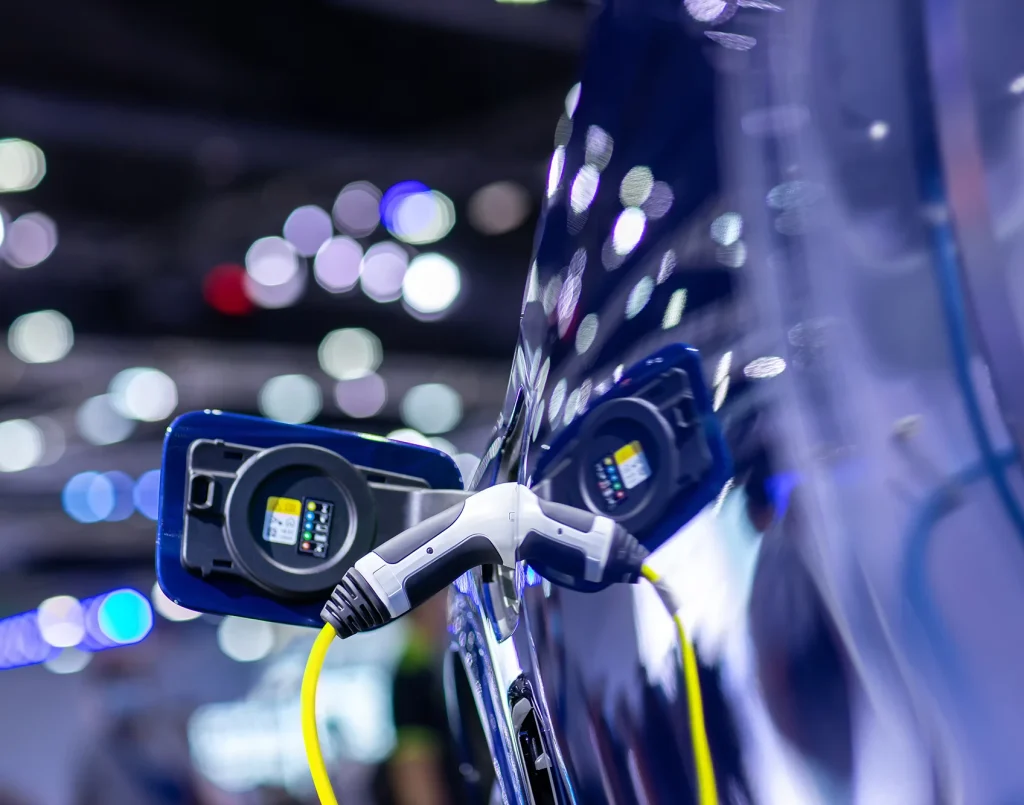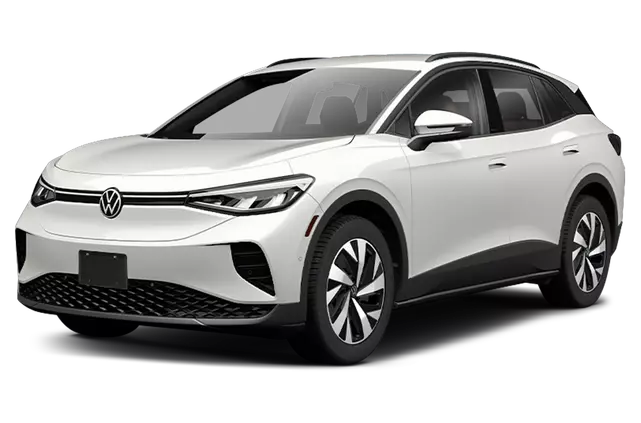Electric vehicles (EVs) have gained significant traction in recent years as a promising solution to combat climate change, reduce air pollution, and transition towards sustainable transportation. With options ranging from fully electric cars like the Nissan Leaf, Ford Focus Electric, Tesla Model S, and Chevrolet Volt to hybrid models that combine electricity with gas power, various choices are available for environmentally conscious consumers.
Thanks to advancements in battery technology and increased government support worldwide, EVs are becoming more accessible and appealing to consumers. However, like any other technology, electric vehicles come with their own set of pros and cons.
Let’s dive into the top 10 pros and cons of electric vehicles to find out if they are really worth making the switch.
Advantages of Electric Vehicles
- Environmental Friendliness
One of the most significant benefits of electric vehicles is their environmental friendliness. Unlike traditional gas-guzzling cars, EVs produce zero tailpipe emissions when running on electricity. By driving an electric vehicle, you’re contributing to cleaner air and reducing greenhouse gas emissions significantly.
- Savings on Operating Costs
Switching to an electric automobile can save you big bucks in operating costs over time. Charging up with electricity is generally cheaper than filling up with gasoline or diesel fuel, resulting in substantial savings at the pump. Additionally, maintenance costs for EVs tend to be lower since they have fewer moving parts compared to combustion engine cars—no more oil changes or costly engine repairs!
- Efficiency that Goes the Extra Mile
Electric motors are more energy-efficient than combustion engines because they waste less energy through heat or friction. This efficiency translates into longer driving ranges per charge—a significant advantage for those looking for extended trips without worrying about refuelling frequently.
- Incentives that Make You Smile
Most governments around the world recognize the importance of transitioning towards sustainable transportation solutions like EVs. Many countries offer incentives such as tax credits or rebates for purchasing an electric vehicle to encourage adoption.
This helps offset some of the initial upfront costs and makes owning an EV even more appealing from a financial standpoint.
- Silent but Powerful Rides
Say goodbye to noisy engines! Electric motors operate silently, providing a peaceful and serene driving experience. This enhances passenger comfort and reduces noise pollution in urban areas, making electric vehicles an excellent choice for those seeking a quieter ride.
- Renewable Energy Integration:
EVs provide a unique opportunity to integrate renewable energy sources into the transportation sector. As the share of renewable energy in the grid increases, electric vehicles can be charged using clean energy, reducing their environmental impact. This combination between EVs and renewables helps create a more sustainable energy system.
- Healthier Air, Healthier You
By driving an electric vehicle, you’re not only contributing to cleaner air but also improving your health and well-being. Zero tailpipe emissions mean reduced exposure to harmful pollutants adversely affecting respiratory health. With each mile driven in an EV, you’re actively working towards creating healthier communities for everyone.
- Maintenance Made Simple
Electric vehicles have fewer moving parts compared to traditional cars with combustion engines. This means less maintenance overall—no more oil changes or spark plug replacements. Additionally, EVs don’t require regular tune-ups like their gasoline counterparts, making them even easier and cheaper to maintain over time.
- Driving Pleasure
Last but not least, electric vehicles offer exhilarating driving experiences. Electric motors deliver instant torque, resulting in quick acceleration and smooth performance.
Additionally, with advancements in battery technology, driving ranges are increasing, and charging times are decreasing—making long trips more feasible than ever before. Whether you’re commuting to work or embarking on a cross-country adventure, EVs provide an enjoyable ride that’s both eco-friendly and technologically impressive.
- Advancements Paving the Way
Battery technology is evolving rapidly as researchers invest more resources into developing better energy storage solutions for electric vehicles. Driving ranges are increasing, and charging times are faster than ever. As technological advancements continue, EVs will only improve, allowing us all to embrace a sustainable future.
Disadvantages of Electric Vehicles
- Limited Driving Range
One of the primary concerns associated with electric cars is their limited driving range per charge compared to traditional gasoline-powered vehicles. Although this issue is gradually being addressed through improved battery technology—allowing some EV models today to achieve ranges comparable to or exceeding those offered by conventional cars—range anxiety remains prevalent among potential buyers.
- Charging Infrastructure Availability
While substantial progress has been made in expanding public charging networks globally over recent years; however, some regions may still need more charging infrastructure, especially in rural areas or developing countries. This can make long-distance travel inconvenient and limit the accessibility of electric vehicles for some individuals.
- Longer Refueling Time
Charging an electric vehicle takes significantly longer than refuelling a gasoline car at a gas station due to the current limitations of fast-charging technologies. Even with fast chargers, fully recharging an EV can take anywhere from 30 minutes to several hours—depending on the charging capacity and battery size—considerably longer than filling up a gas tank.
- Dependence on Charging Point Availability:
Owning an electric car requires access to reliable sources of electricity and adequate charging stations. In regions with unstable power grids or limited renewable energy options, this dependence may pose challenges for EV owners who rely heavily on their vehicles’ availability for daily transportation needs.
- Upfront Cost
The initial purchase price of electric vehicles tends to be higher than traditional cars due to expensive battery technology. However, it’s important to consider that long-term cost savings through reduced fuel consumption and maintenance expenses often outweigh this initial investment over the vehicle’s lifespan.
- Battery Degradation Over Time:
Like all rechargeable batteries, those used in electric vehicles deteriorate gradually over time as they experience charge-discharge cycles. Though advancements have been made in increasing battery longevity and durability; however, eventually, the performance and driving range of an EV will diminish, and the battery pack may need replacement—a significant expense in itself.
- Limited Model Variety
While there has been substantial growth in the number of electric vehicle models available on the market, options still tend to be more limited compared to conventional cars. This limitation might impact consumers who prefer specific body styles (such as SUVs or trucks)or features not commonly found among existing EV models.
Lack of Standardized Charging Connectors:
Different types and standards for charging connectors exist globally, making compatibility an issue for EV owners who may need help finding appropriate chargers while away from home or traveling between regions with varying connector types.
- Weight and Space Constraints:
Electric vehicles tend to be heavier than conventional cars due to the weight of their battery packs. This added weight affects handling and overall performance. Additionally, the space occupied by batteries restricts available cargo or passenger capacity in some EV models—making them less suitable for large families or individuals requiring ample storage space.
- Transition Challenges:
As electric vehicles become more prevalent, infrastructure upgrades will be needed to support increased charging demand. Currently, public fast-charging stations may experience congestion during peak hours, and long-distance travel might require careful route planning around available charging points. Although progress is being made in this area, it will take time before widespread public charging infrastructure becomes as convenient and accessible as refuelling at gas stations.
Is Owning an EV Right for You?
Owning an electric vehicle (EV) can be a great choice for many people, but evaluating whether it aligns with your specific needs and lifestyle is important. Here are some factors to consider when deciding if owning an EV is suitable for you:
1. Driving Habits: Assess your typical driving patterns. If you have a short daily commute or primarily use your vehicle for local trips, an EV could be a suitable option since their limited range may not be a significant concern.
2. Charging Options: Consider the availability of charging infrastructure in your area. If you have access to convenient home charging or reliable public charging stations nearby, recharging an EV will be more practical and less stressful.
3. Budget: Evaluate the upfront costs of purchasing an EV compared to traditional vehicles and ongoing operating expenses like electricity costs and potential battery replacement down the line.
4. Environmental Concerns: If reducing carbon emissions and air pollution is essential to you, owning an EV can align with your environmental values—contributing positively towards sustainability goals.
5. Supporting Infrastructure: Research the development of supporting infrastructure in your region, including charging networks and maintenance services—ensuring that necessary support is available when needed.
6. Technology Adoption: Consider how comfortable you are with embracing new technology features in vehicles—such as regenerative braking systems or smart connectivity options—as these advanced features are often found in electric cars.
Ultimately, deciding to own an electric vehicle requires careful consideration of these factors, personal preferences and priorities. If, after evaluating these aspects, you find that the benefits outweigh any potential drawbacks, it may be time to make the switch toward cleaner transportation by choosing an electric vehicle.
Conclusion
Electric vehicles have emerged as powerful contenders in the race towards a greener future. With their environmental benefits, cost savings, and technological advancements, EVs drive us towards a cleaner and more sustainable transportation landscape.
However, challenges such as limited driving range, charging infrastructure, and upfront costs remind us that the road to widespread EV adoption still has twists and turns.
Nevertheless, overcoming these obstacles allows us to enjoy the thrill of electric driving, contributing to cleaner air, quieter streets, and a healthier planet. So, let’s embrace the pros while addressing the cons, accelerating towards a future where electric vehicles reign supreme on the open road.


